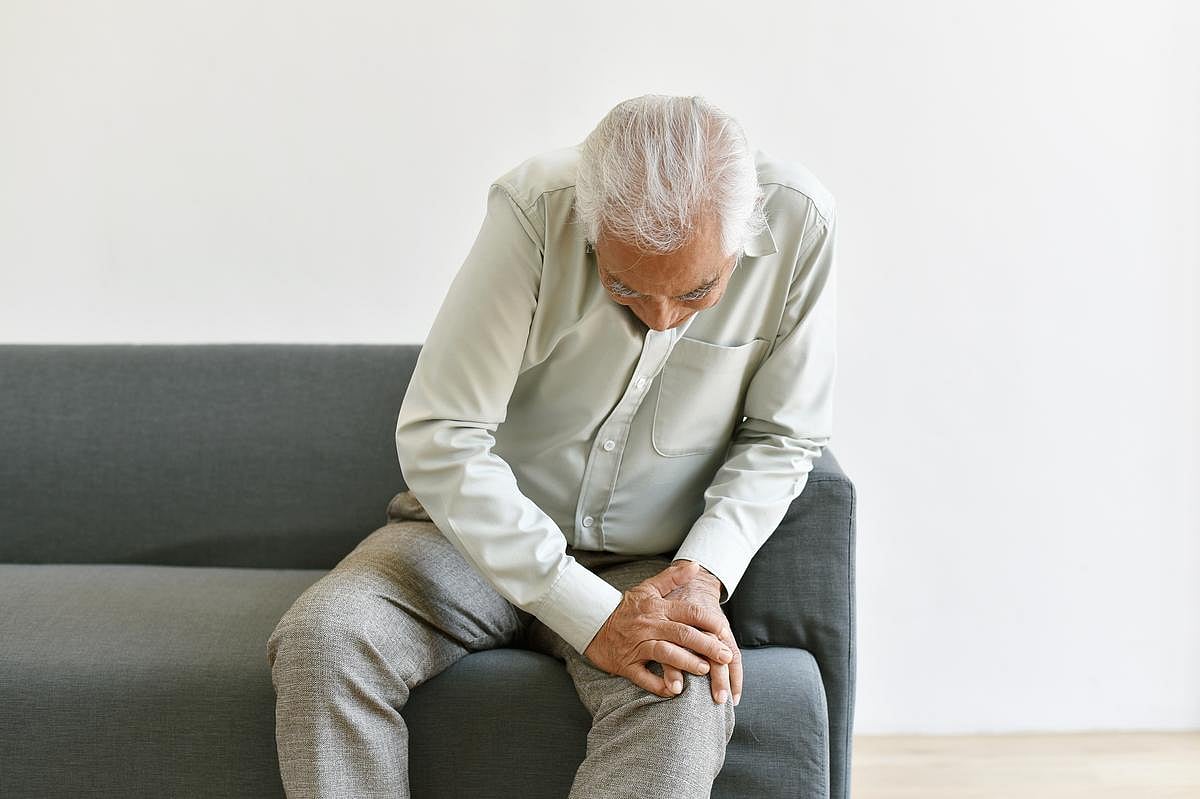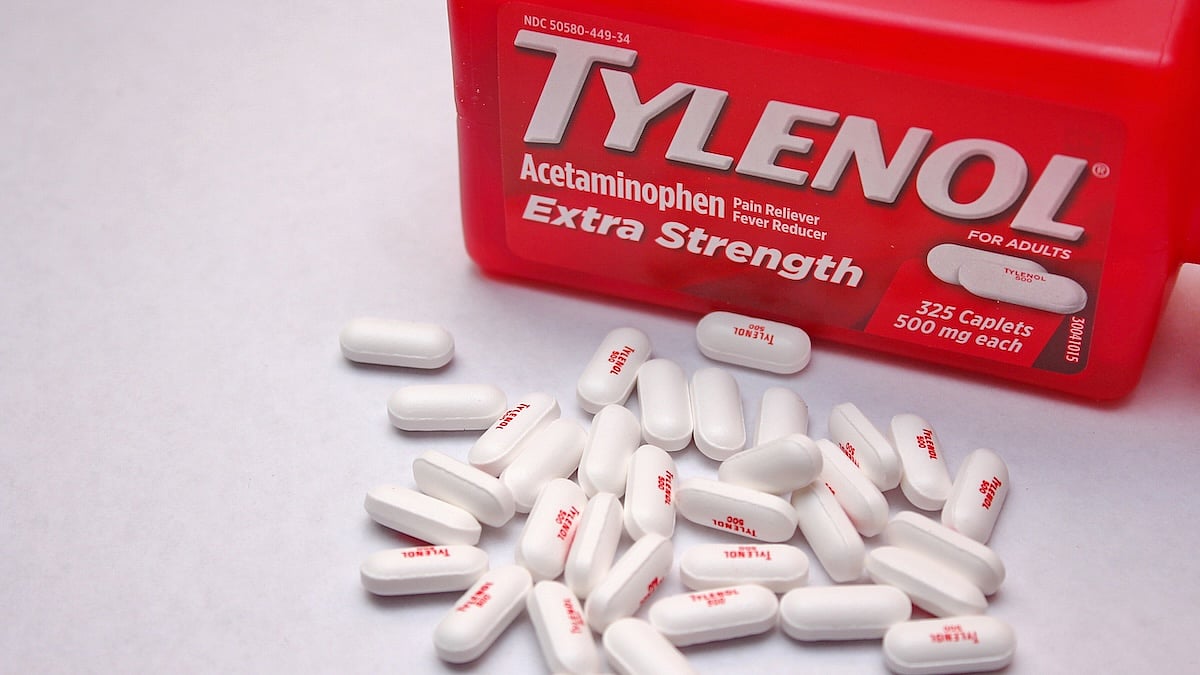Manténgase sano!
Mantenerse informado(a) promueve la buena salud. Manténgase al día con las últimas noticias médicas encontradas aquí.
30 Oct
Painful Colon Infection Once Rare in Young Adults Is on the Rise
A new study finds a surprising surge in severe diverticulitis among young adults in the U.S.
29 Oct
COVID, Flu and Other Viral Infections Can Dramatically Raise Heart Attack and Stroke Risk, New Study Finds
New research shows common viruses increase the risk of heart attack and stroke, especially in the weeks following initial infection.
28 Oct
Mediterranean Diet Reduces IBS Pain and Other Severe Symptoms
In a new study, people with irritable bowel syndrome who followed a Mediterranean diet for 6 weeks experienced significant relief from abdominal pain and other severe symptoms.
Obamacare Premiums Could Jump 30% as Subsidies Expire
Millions of Americans who buy their own health insurance could soon face steep premium increases, as temporary federal subsidies that helped lower costs for Obamacare plans are set to expire at year’s end.
Rates for plans sold through federal Obamacare marketplaces will rise, on average, by 30% next year, according to a new analysis ...
- I. Edwards HealthDay Reporter
- |
- October 30, 2025
- |
- Página completa
5,000+ Measles Cases Threaten Canada’s Elimination Status
Canada may lose its measles elimination status amid a yearlong outbreak that has infected more than 5,000 people and killed two infants, health officials said this week.
The outbreak began in October 2024 in New Brunswick and has now spread across multiple provinces. It is Canada’s first continuous measles transmission in more than 2...
- I. Edwards HealthDay Reporter
- |
- October 30, 2025
- |
- Página completa
Medical Debt May Soon Return to Credit Reports Under New Trump Rule
The Trump administration is taking steps to roll back state laws that protect consumers from having medical debt appear on their credit reports.
The move could impact millions of Americans already struggling with unpaid medical bills.
The Consumer Financial Protection Bureau (CFPB) has drafted a rule that would give the federal gover...
- I. Edwards HealthDay Reporter
- |
- October 30, 2025
- |
- Página completa
Germany Pledges $1 Billion for 200,000 Holocaust Survivors
Germany has agreed to provide more than $1 billion in new funding to support Holocaust survivors worldwide, helping many continue to live independently in their own homes.
The deal, negotiated with Germany’s Finance Ministry, makes it the largest home care budget in the organization’s history, totaling $1.076 billion (923.9 mil...
- I. Edwards HealthDay Reporter
- |
- October 30, 2025
- |
- Página completa
Sitting For Long Periods? Sip Cocoa Or Munch Berries To Protect Heart Health, Experts Say
A hot cup of cocoa or tea, an apple or a bowlful of berries might help protect the heart health of couch potatoes or desk jockeys, a new study suggests.
Those foods and drinks are all rich in plant chemicals called flavanols, and a lab experiment showed that they might prevent blood vessel problems caused by too much sitting, researchers r...
- Dennis Thompson HealthDay Reporter
- |
- October 30, 2025
- |
- Página completa
Home Exercises Ease Knee Arthritis Pain
Home exercises can effectively ease knee pain caused by cartilage tears and arthritis, apparently with or without physical therapy, a new study says.
The stretching and strengthening exercises provided about the same amount of pain relief whether or not a person got real or sham physical therapy, researchers reported Oct. 29 in The New...
- Dennis Thompson HealthDay Reporter
- |
- October 30, 2025
- |
- Página completa
Epilepsy From Brain Injury Comes With Increased Risk Of Death, Experts Say
Military veterans who develop epilepsy following a traumatic brain injury might be more likely to die earlier than others with epilepsy.
However, their risk could depend on the cause of their brain injury, researchers reported Oct. 29 in the journal Neurology.
“We recommend that people who develop epilepsy after a trau...
- Dennis Thompson HealthDay Reporter
- |
- October 30, 2025
- |
- Página completa
How A Brain Pressure Disorder Causes Vision Loss — And Who Might Be Affected
Doctors think they’ve figured out a way to predict who might lose vision due to a high brain pressure disorder.
Idiopathic intracranial hypertension (IIH) occurs when there’s unexplained pressure buildup in the fluid that cushions the brain in the skull, researchers explain in the journal Neurology.
If untreated,...
- Dennis Thompson HealthDay Reporter
- |
- October 30, 2025
- |
- Página completa
Liver Donations Following Assisted Suicide Are Safe, Life-Saving, Experts Say
People who end their terminal illness through assisted suicide can safely make a difference in the lives of others through organ donation, a new study says.
Liver transplants performed using organs donated following euthanasia had outcomes similar to those made with donations after death from natural causes, researchers reported Oct. 26 in...
- Dennis Thompson HealthDay Reporter
- |
- October 30, 2025
- |
- Página completa
Puberty: The Signs, Stages & When to See a Doctor
Puberty is the time when children’s bodies start to make hormones that lead to physical changes and signs of maturation.
It prepares the body for reproduction. It is also when significant growth occurs. In girls, it starts around age 8 and in boys, it starts around age 9, but there can be some variation. Pub...
- Tamar G. Baer, MD, Pediatric Endocrinology and Diabetes, Pediatrics HealthDay Reporter
- |
- October 30, 2025
- |
- Página completa
25 States Sue USDA to Keep Food Stamp Benefits From Stopping
As the federal government shutdown threatens to stop funding for food aid programs, Democratic leaders from 25 states have filed a lawsuit seeking to continue Supplemental Nutrition Assistance Program (SNAP) benefits.
The lawsuit, filed Tuesday in Massachusetts federal court, argues that the U.S. Department of Agriculture (USDA) has both t...
- I. Edwards HealthDay Reporter
- |
- October 29, 2025
- |
- Página completa
Texas Sues Tylenol Over Alleged Autism Link
Texas Attorney General Ken Paxton has filed a lawsuit accusing Kenvue, the maker of Tylenol, and its former parent company, Johnson & Johnson, of misleading consumers about the safety of the popular pain reliever during pregnancy.
Filed Tuesday in Texas state court, the lawsuit claims the companies continued to sell acetaminophen produ...
- I. Edwards HealthDay Reporter
- |
- October 29, 2025
- |
- Página completa
Trump Confirms MRI Scan, Says Results Were ‘Perfect’
President Donald Trump has confirmed that doctors at Walter Reed National Military Medical Center recently performed an MRI scan, his second medical visit of the year.
The move seems to be drawing much attention to the 79-year-old president’s health, CNN reported.
Speaking to reporters aboard Air Force One on Monday, T...
- I. Edwards HealthDay Reporter
- |
- October 29, 2025
- |
- Página completa
Henna Dye Shows Promise for Treating Liver Disease, Study Finds
The same natural dye responsible for Lucille Ball’s signature red hair has pigments that might one day be used to treat serious liver disease.
Lawsonia inermis is a broadleaf evergreen best known for making henna, a dye used to change the color of hair, skin and clothes.
Writing in the October issue of the journal Biomedici...
- Carole Tanzer Miller HealthDay Reporter
- |
- October 29, 2025
- |
- Página completa
Missing Nutrient Might Explain Health Problems Among Babies Born To Women With HIV
Babies born to women living with HIV often struggle with health problems and delayed development, even if they aren’t infected with the virus themselves.
The mothers’ breast milk might have something to do with it, a study published Oct. 28 in Nature Communications argues.
Breast milk in women with HIV contains s...
- Dennis Thompson HealthDay Reporter
- |
- October 29, 2025
- |
- Página completa
Injectable Drug Helps Asthma Patients Clear Mucus-Clogged Airways
An anti-inflammation injectable drug can reduce mucus buildup and improve breathing among asthma patients, a new clinical trial says.
The drug dupilumab (Dupixent) effectively clears up airways plugged by mucus during an asthma attack, researchers reported Oct. 27 in the American Journal of Respiratory and Critical Care Medicine.<...
- Dennis Thompson HealthDay Reporter
- |
- October 29, 2025
- |
- Página completa
Flu, COVID Increase Risk of Heart Attack, Stroke
People’s risk of heart attack or stroke skyrockets after a bout with the flu or COVID, a new evidence review says.
Folks are four times more likely to have a heart attack and five times more likely to have a stroke within a month of infection with influenza, researchers reported today in the Journal of the American Heart Associat...
- Dennis Thompson HealthDay Reporter
- |
- October 29, 2025
- |
- Página completa
Women Get More From Exercise Than Men
Women benefit much more from exercise than men, reaping many more gains with considerably less work, a new study reports.
With the same amount of exercise, women experience a three-fold reduction in their risk of death from heart disease compared to men, researchers reported Oct. 27 in Nature Cardiovascular Research.
These r...
- Dennis Thompson HealthDay Reporter
- |
- October 29, 2025
- |
- Página completa
Self-Affirmations Effectively Boost Mood And Confidence, Review Finds
“I love myself unconditionally.”
“I am worthy of love, joy and happiness.”
“I am strong, capable and resilient.”
“I breathe in relaxation and breathe out tension.”
Self-affirmations might seem sappy, but they can they contribute to people’s happiness and well-being, ac...
- Dennis Thompson HealthDay Reporter
- |
- October 29, 2025
- |
- Página completa
Climate Change Causing More Deaths From Heat, Wildfire Smoke
Deaths from heat and air pollution have surged as climate change continues apace, a new report says.
Worldwide, the rate of heat-related deaths has risen by 23% since the 1990s, and now claim 546,000 lives each year, researchers reported today in The Lancet Countdown on Health and Climate Change.
Likewise, a record 154,000 d...
- Dennis Thompson HealthDay Reporter
- |
- October 29, 2025
- |
- Página completa



















.jpeg?w=1920&h=1080&mode=crop&crop=focalpoint)
